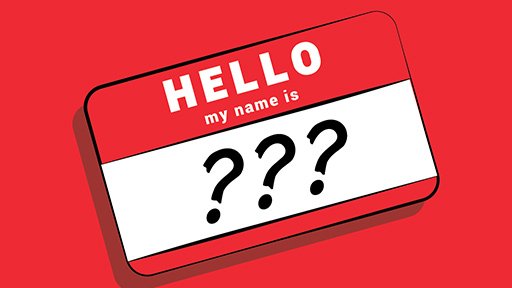

Names are important, meaningful, and symbolic, but they are not always easy to develop, whereas brands are concerned. Sure, there are brand name generators online, but going that route does not guarantee success for your brand. Proper branding can make or break a company.
Naming a brand requires a lot of brainstorming, inspiration, and feedback because the right name can become a valuable asset. The name does not necessarily have to be catchy or feel right to the business owner, but it must communicate something to the consumers. Most importantly, a good brand name must be able to stand the test of time, especially as the brand itself evolves.
For example, the name Amazon works because the company started as an online textbook store and now sells pretty much everything. Imagine if it were called Textbooks Unlimited! On the other hand, businesses like Burlington Coat Factory get away with names that readily convey what they sell (outerwear) even though they have so much more to offer. Yet, the customers can still identify the brand because they have become emotionally invested in it based on their past shopping experiences at the store. In this case, the name does not define the store; the store (aesthetics, products, and services) gives meaning to the name.
While it is better to stick with a name that is not so telling but connects perfectly with the brand, businesses must determine their true purpose when deciding on a name. In other words, they need to understand who they are and what goals they desire to achieve. They must also evaluate their strengths and how they differ from their competitors. These steps are usually taken during the brand identity development and play a huge role in the brand logo design and the product packaging design.
When trying to come up with a name, businesses may opt to employ the services of branding company. Branding companies will schedule a brainstorm session where they will explore different ideas based on the business’ unique personality and goals. For example, the branding company may advise the company to keep it simple by naming their brand after their founders (think Walgreens or Tory Burch). They may choose to be descriptive and choose a moniker that describes what they are all about, like Radio Shack, or choose a made-up name like Xerox. Acronyms like DKNY (Donna Karen New York) and HP (Hewlett Packard) have a nice ring to them and so do brands with unique spellings, like Flickr.
Whatever route a business chooses to take, it is essential to research to ensure the name, including a domain, is available. Companies can check the United States Patent and Trademark Office’s database to see whether any of the names they have come up with are registered. If any of the names are available, they can vet them with a legal team’s help.
Ultimately, the main goals when deciding on a name are to find one that aligns perfectly with brand positioning and embodies brand personality. Once a name has been determined, the brand can work on its messaging and brand logo design, and create branding that can be included in content and marketing strategies. With careful planning and intentionality, brands can build equity and add value to their name. If you are looking for professional help with branding contact us today.